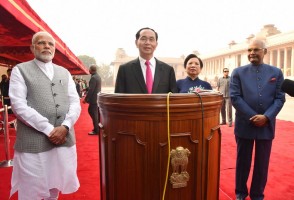
India’s key industries need sops to spur investment
Days after the RBI slashed interest rate by 50 basis points, an industry body has sought special dispensations from the government to protect India’s key industries including real estate, power, steel, and gems and jewellery sectors. The industry body has asked the government to cut excise duty and take other accommodative measures like teaser loans for the housing sectors to bail these industries out of crisis. “For creating additional demand, the government will have to chip in with, rather bold measures and create extra elbow room for the selected industries by way of extending short tenure stimulus on construction material like steel, cement, power equipment while for the gems and jewellery, export sops like interest subvention must seriously be considered,” ASSOCHAM Secretary General D S Rawat said. Currently, the average industry capacity utilization is 77%. “Unless the C.U. (capacity utilization) reaches at least 100%, we can’t expect the investment cycle to revive even though interest rates have come down,” Rawat said. Rawat clarified that the special dispensation wouldn’t create a hole in the government’s fiscal purse but it would up the demand, leading to more tax collection and increased revenue while creating an overall positive atmosphere. ASSOCHAM has put pressure on the RBI, banks, states and the Central government to protect the troubled power distribution companies (discoms), or else they would become dead assets and big drags on the exchequer, leading to a big rise in the non-performing assets. “The RBI slashed the policy interest rates, which did not get transmitted to the borrowers on earlier occasions. Between September 2014 and August 2015, while the repo rate got reduced by 75 basis points (before the latest 50 bps cut), the banks weighted average lending rate was marginally brought down to 11.93%, just down 15 bps from 12.12%. Certainly, the banks did not help the situation and some of these core employment generating industries slipped further into troubles because of lack of consumer demand, high interest costs and cheap imports,” Assocham said in a statement. It said that once the growth cycle becomes stable, the government can close the special window. “Under the given tough circumstances, lower interest alone would not help because the issue is not high cost of investment, but lack of demand, an essential factory for building new capacity,” the chamber said.






 to success.
to success.